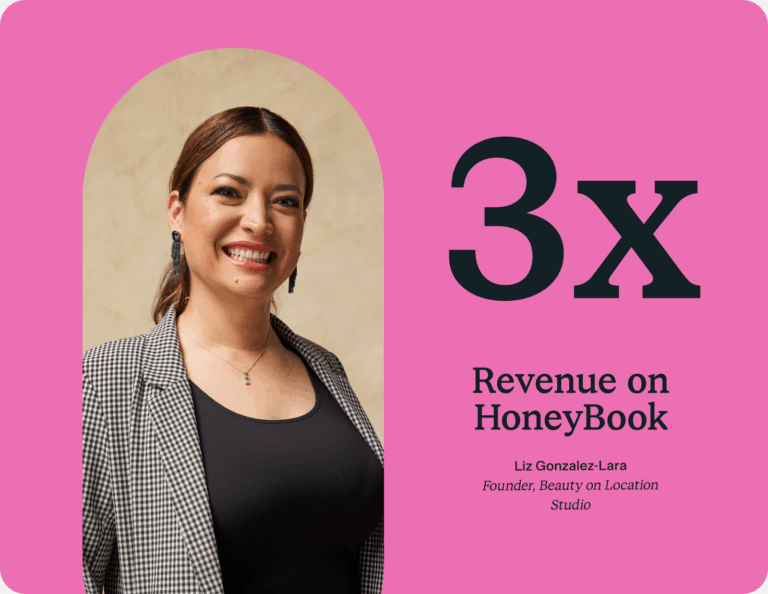Learn how you can capitalize on the new law for small business growth

U.S. President Donald J. Trump signed the One Big Beautiful Bill Act into law on July 4, 2025. The sweeping legislation encompasses thousands of provisions affecting critical industries and policy areas, including healthcare, student loans, military affairs, border security, energy policy, and many others.
This single bill represents one of the most comprehensive pieces of legislation passed in the United States in recent years, with far-reaching implications (and benefits) that extend well beyond the headline-grabbing policy changes. While bigger companies and organizations often have teams to go through all of the details—small and independent business owners are often left to navigate these complex changes on their own.
So, you might be left wondering, what’s the impact of this on my small business, and what do I need to do about it?
The simple answer is that legislation this broad touches virtually every aspect of running a business, from tax implications and regulatory compliance to new funding opportunities and market changes.
And for small businesses operating with limited resources, understanding these impacts isn’t just helpful—it’s essential for survival and growth.
Not to worry, we have you covered. Here’s what you need to know to protect your business, capitalize on new opportunities, and stay ahead of the curve in this new regulatory landscape.
What is the One Big Beautiful Bill Act?
First things first, you might be wondering, what exactly is the One Big Beautiful Bill Act and what’s in it? Answer: the One Big Beautiful Bill Act is a spending and tax bill that has helped implement most of the key domestic policy agenda items of the Trump administration such as increased spending in border security, energy, and the military and cuts in Medicaid, social security, student loan funding, environmental funding, and the Supplemental Nutrition Assistance Program (SNAP).
One of the most impactful provisions of the bill is extending and codifying most of President Trump’s 2017 Tax Cuts and Jobs Act—which was slated to end this year.
Key components of this act that are now permanent include:
- A permanent qualified business income deduction (QBI) of 20%
- Higher standard deductions
- Lower tax brackets
There are also some temporary tax provisions that are in effect from 2025-2028, including:
- No tax on tips or overtime
- A partial repeal of green energy tax credits
The impact of the One Big Beautiful Bill Act on small business owners
This makes sense, you say—but what does this mean for me? Here are the key parts of the One Big Beautiful Bill Act that could directly affect—and possibly benefit—many small business owners.
Permanent 20% qualified business income (QBI) deduction
One of the most important tax benefits coming out of the One Big Beautiful Bill Act for small business owners is a permanent 20% QBI deduction. What this means is that businesses that are taxed as pass-through entities (such as sole props, LLCs, S Corps) are now allowed to deduct 20% of their net business income from taxable income.
This means that one of the biggest levers to reduce tax liability is now permanent with the One Big Beautiful Bill Act in effect, providing small business owners long-term certainty and planning flexibility.
Tax exemption on tips and overtime
The One Big Beautiful Bill Act also allows workers earning under $150,000 to deduct up to $25,000 in tips and $12,500 in overtime pay from federal income taxes* for the next 4 years.
There will be a list of occupations that qualify for this exemption, though it hasn’t been released yet. With what we currently know, we project that this could greatly benefit small business owners in tip-receiving roles—such as event and wedding vendors— where tips are common.
This provision now moves to the IRS, which is tasked with defining which occupations qualify and how the deductions will be tracked and reported.
Our team will be following this closely and will provide updates as soon as more information is released.
Restoration of 100% bonus depreciation
With this bill passed, business owners can now again deduct 100% of the purchase price of qualified business property (which is equipment with a useful life of under 20 years) in the year it’s placed in service.
For small business owners, this could include cameras, lighting gear, AV equipment, laptops, or even studio furniture. This immediate write-off can help reduce taxes significantly in years with big investments.
Expanded deduction for excess business losses
The One Big Beautiful Bill Act permanently extends a crucial tax benefit for small business owners: the ability to deduct substantial business losses against other income sources. Married couples can now deduct up to $626,000 in business losses (or $313,000 for single filers) against income like a spouse’s salary or investment gains.
This benefit is a game-changer for small business owners dealing with seasonal income fluctuations, significant startup costs, or the natural ups and downs of building a business. When your business has a rough year, these losses can offset other taxable income, providing crucial financial relief during challenging periods.
Additional opportunities for personal tax planning
Small business owners also stand to gain significantly from the One Big Beautiful Bill Act’s personal tax provisions, which include expanded health savings account (HSA) access, a higher state and local tax (SALT) deduction cap, and new tax-advantaged children’s savings accounts that come with a $1,000 government seed contribution for qualifying families.
For small business owners, these personal tax benefits are particularly valuable because their personal and business finances are often one and the same. When you’re running your own business, you’re typically paying for health insurance, childcare, and your children’s future education directly from business income—without the luxury of employer-sponsored benefits or automatic payroll deductions that traditional employees enjoy. This makes strategic tax planning across both sides of your financial life absolutely essential.
*payroll and state taxes still apply
Stay on track with changes: HoneyBook x Uprise
With sweeping tax legislation like the One Big Beautiful Bill Actreshaping the financial landscape, small business owners—like yourself —need more than just annual tax filing support—they need year-round strategic guidance.
That’s exactly where the HoneyBook and Uprise partnership steps in. Uprise is an all-in-one certified financial and tax planner for small business owners. Together, we’re committed to helping small business owners get proactive, strategic support that goes beyond traditional tax preparation to encompass smarter financial decision-making throughout the year.
Whether you’re evaluating entity selection, maximizing deductions, or ensuring compliance with new regulations, our integrated approach helps you stay organized, optimize your tax strategy, and build long-term financial confidence.
In this rapidly changing tax environment, having the right partnership means you won’t miss valuable opportunities or get caught off guard by new requirements, and that you’ll be positioned to win.
The bottom line: Your path forward in the new tax landscape
The One Big Beautiful Bill Act represents a watershed moment for small business owners.
With permanent benefits like the 20% QBI deduction and temporary advantages such as tip and overtime tax exemptions, the legislation creates a window of opportunity that smart business owners can’t afford to overlook.
The key to maximizing these benefits lies in proactive planning and strategic implementation; understanding not just what these changes mean today, but how they can fuel your business growth for years to come.



